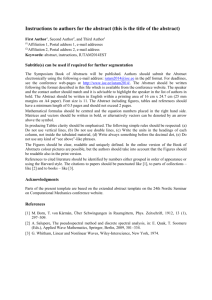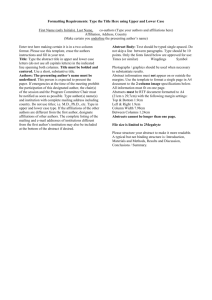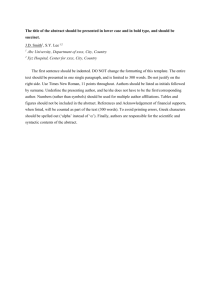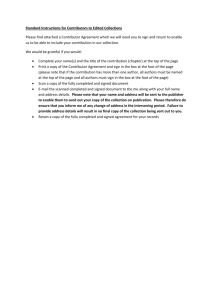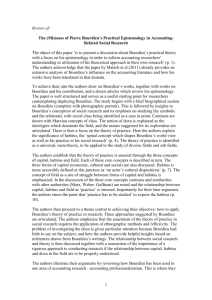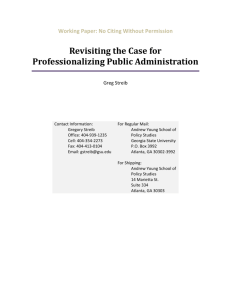view comments
advertisement
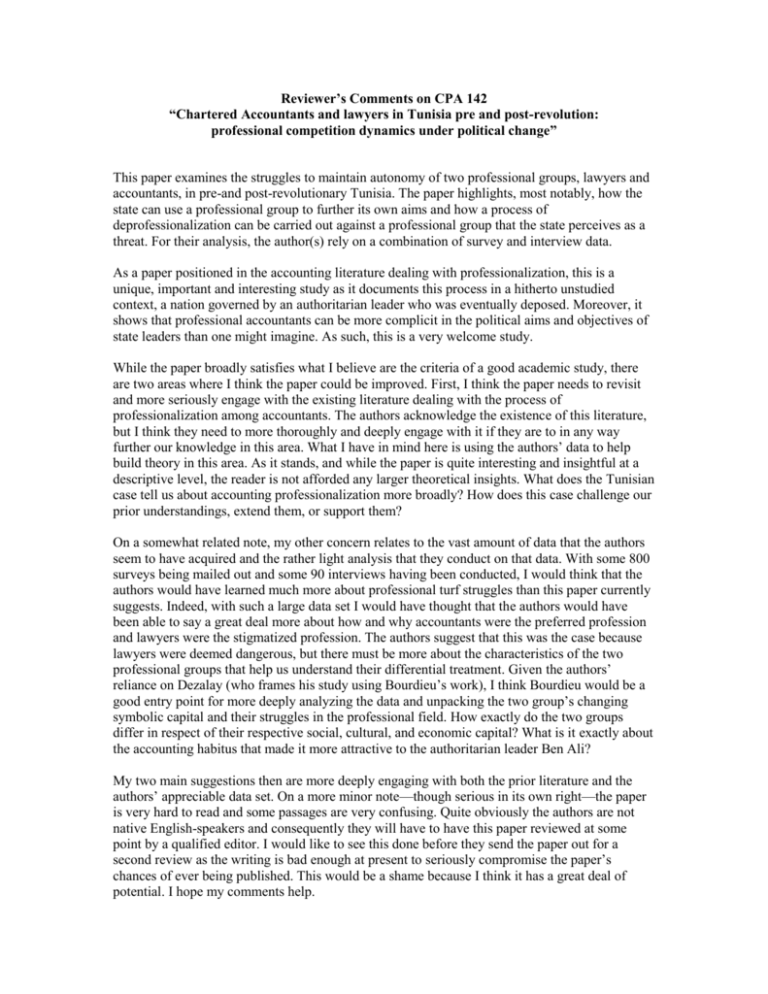
Reviewer’s Comments on CPA 142 “Chartered Accountants and lawyers in Tunisia pre and post-revolution: professional competition dynamics under political change” This paper examines the struggles to maintain autonomy of two professional groups, lawyers and accountants, in pre-and post-revolutionary Tunisia. The paper highlights, most notably, how the state can use a professional group to further its own aims and how a process of deprofessionalization can be carried out against a professional group that the state perceives as a threat. For their analysis, the author(s) rely on a combination of survey and interview data. As a paper positioned in the accounting literature dealing with professionalization, this is a unique, important and interesting study as it documents this process in a hitherto unstudied context, a nation governed by an authoritarian leader who was eventually deposed. Moreover, it shows that professional accountants can be more complicit in the political aims and objectives of state leaders than one might imagine. As such, this is a very welcome study. While the paper broadly satisfies what I believe are the criteria of a good academic study, there are two areas where I think the paper could be improved. First, I think the paper needs to revisit and more seriously engage with the existing literature dealing with the process of professionalization among accountants. The authors acknowledge the existence of this literature, but I think they need to more thoroughly and deeply engage with it if they are to in any way further our knowledge in this area. What I have in mind here is using the authors’ data to help build theory in this area. As it stands, and while the paper is quite interesting and insightful at a descriptive level, the reader is not afforded any larger theoretical insights. What does the Tunisian case tell us about accounting professionalization more broadly? How does this case challenge our prior understandings, extend them, or support them? On a somewhat related note, my other concern relates to the vast amount of data that the authors seem to have acquired and the rather light analysis that they conduct on that data. With some 800 surveys being mailed out and some 90 interviews having been conducted, I would think that the authors would have learned much more about professional turf struggles than this paper currently suggests. Indeed, with such a large data set I would have thought that the authors would have been able to say a great deal more about how and why accountants were the preferred profession and lawyers were the stigmatized profession. The authors suggest that this was the case because lawyers were deemed dangerous, but there must be more about the characteristics of the two professional groups that help us understand their differential treatment. Given the authors’ reliance on Dezalay (who frames his study using Bourdieu’s work), I think Bourdieu would be a good entry point for more deeply analyzing the data and unpacking the two group’s changing symbolic capital and their struggles in the professional field. How exactly do the two groups differ in respect of their respective social, cultural, and economic capital? What is it exactly about the accounting habitus that made it more attractive to the authoritarian leader Ben Ali? My two main suggestions then are more deeply engaging with both the prior literature and the authors’ appreciable data set. On a more minor note—though serious in its own right—the paper is very hard to read and some passages are very confusing. Quite obviously the authors are not native English-speakers and consequently they will have to have this paper reviewed at some point by a qualified editor. I would like to see this done before they send the paper out for a second review as the writing is bad enough at present to seriously compromise the paper’s chances of ever being published. This would be a shame because I think it has a great deal of potential. I hope my comments help.



